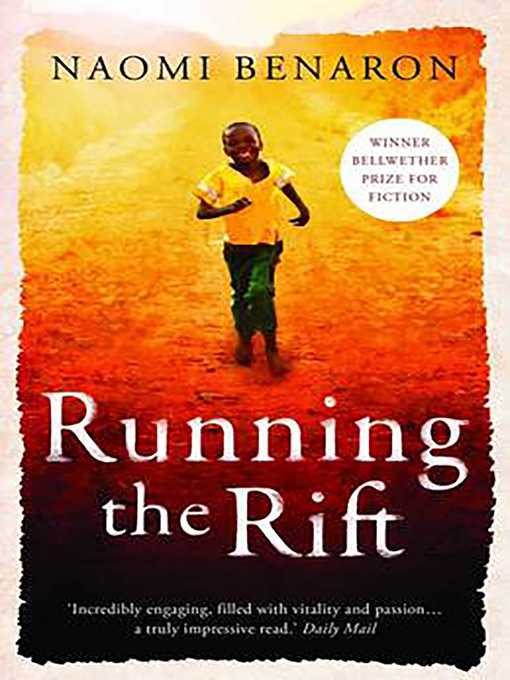
Running the Rift
کتاب های مرتبط
- اطلاعات
- نقد و بررسی
- دیدگاه کاربران
نقد و بررسی

March 26, 2012
Set during the 1980s and ’90s, Benaron’s novel follows Jean Patrick Nkuba, an aspiring Olympic runner from Rwanda, as he struggles with the burdens of life in his home country and the growing conflict between Tutsi and Hutu people, which escalates and eventually leads to the Rwandan genocide of 1994. Narrator Marcel Davis produces a passable Rwandan accent; it is lilting and precise, but cuts in and out during dialogue. Davis narrates the rest of the book in an American accent. And while his reading is clear and well paced, this disparity only adds to the awkwardness of his attempt to capture the sound and rhythm of Rwandan speech and in the end undermines his performance. An Algonquin hardcover.

Starred review from September 26, 2011
Set in the years leading up to the Rwanda genocide, Benaron’s Bellweather Prize–winning debut novel follows Jean Patrick Nkuba, “the jewel in Rwanda’s crown,” a Tutsi boy with a gift for running. Jean Patrick dreams of representing Rwanda in the Olympics, but must contend with abject poverty, an ethnic quota system, and savage bullying. He runs Olympic-qualifying times, moving closer to his dreams as tensions rise between the governing Hutus and the RPF (Rwandan Patriotic Force), a Tutsi-led rebel army. Jean Patrick gains the favor of the president, but falls in love with a journalism student participating in antigovernment activism, and finds himself entangled in a vast and calamitous game of political chess. “Something unimaginable is coming,” warns his brother, a rebel soldier, and when the long-smoldering tensions between the Hutus and Tutsis erupt into a hellish conflagration, Jean Patrick must run away from the country he has spent his life running for. Benaron accomplishes the improbable feat of wringing genuine loveliness from unspeakable horror. She renders friendships and families with tenderness and sincerity, and lingers on the goodwill that binds a fractious community, even as those tethers grow taut and, finally, snap. She regards even the genocidaires with clear-eyed charity, allowing moral complexity to color the perversity of their deeds. It is a testament to Benaron’s skill that a novel about genocide—about neighbors and friends savagely turning on one another—conveys so profoundly the joys of family, friendship, and community. This powerful novel recounts inhumanity on a scale scarcely imaginable, yet rebukes its nihilism, countering unforgivable violence with small mercies and unyielding hope.

























دیدگاه کاربران